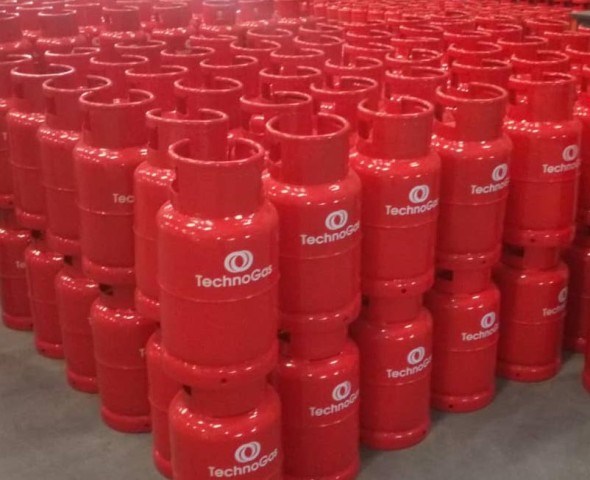Residents in Lagos, Ogun, and other South-Western states are still facing high cooking gas prices even after the Petroleum and Natural Gas Senior Staff Association of Nigeria (PENGASSAN) suspended its strike last week, causing widespread frustration.
The National Association of Liquefied Petroleum Gas Marketers (NALPGM) has assured Nigerians that the shortage driving the surge in prices is temporary and that supply should return to normal in a few days.
Since the strike began, gas prices have jumped to between ₦1,300 and ₦1,600 per kilogram, a sharp increase from less than ₦1,000 per kilogram before the industrial action. Women in particular, who are primary users of cooking gas in households, have expressed concern over the rising costs.
“I bought gas at ₦1,600, and it is still like that until this weekend,” Oluwakemi Mobolaji, a resident of Ota, Ogun State, told one of our correspondents.
Abefe Taiwo, from Ibadan, Oyo State, said she recently refilled her cylinder for ₦1,300 at a major gas station in Challenge, Ibadan.
“I don’t know when the price of gas will go down. The PENGASSAN strike has been suspended. Why is gas still expensive?” asked Adeola, a Lagos resident, on Sunday.
Many gas stations have reportedly run out of supply since last week, while the few still operating have seen long queues of customers waiting to purchase LPG.
Speaking to The Punch on Sunday, Olatunbosun Oladapo, the National President of NALPGM, said the shortage was mostly limited to the South-West, caused by maintenance at the Dangote refinery, compounded by the strike.
“The scarcity is not nationwide. Gas is available in the South-South and East, but the South-West experienced shortages due to recent disruptions. Maintenance was carried out at Dangote, and immediately after that, PENGASSAN embarked on strike, which delayed vessels carrying gas from NLNG. Now that terminals have resumed trucking, the backlog will take two to three days to clear,” Oladapo explained.
He further noted that Dangote has begun issuing pro forma invoices to off-takers and resumed transportation of gas products, steps expected to stabilise supply soon.
Oil and gas expert Olajire Jeremiah said that the pause in Dangote’s sales created a supply vacuum, which led to panic buying and steep price hikes.
“Dangote only resumed selling on Wednesday, after being out of the market for about three weeks. Importers also stayed away, claiming it was difficult to compete with Dangote’s lower pricing. This created a supply vacuum. Scarcity always comes with a price hike, and retailers took advantage,” the CEO of Petroleumprice.ng told The Punch.
As of Wednesday, Dangote was selling LPG at ₦810 per kilogram, while depots such as Ardova and Nipco offered it at ₦910–₦920 per kilogram.
In Abuja, retail outlets were selling cooking gas for up to ₦1,400 per kilogram. A retailer in Kuje said they had to switch suppliers because their usual depot could not meet demand.
“Gas is now both expensive and scarce. We’ve had to buy from new suppliers since our usual depot could not meet demand,” the retailer lamented.
NALPGM has assured that with Dangote’s resumed sales and continued trucking, gas supply across the country should stabilise within one to two weeks, urging consumers to be patient.

